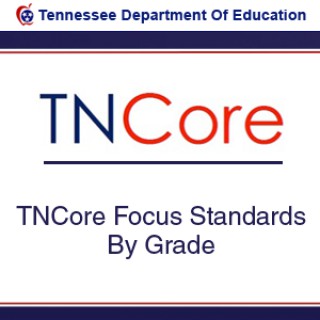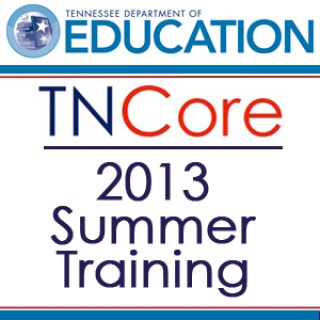
Cooperative Learning: Generating and Testing Hypothesis
Follow Cooperative Learning: Generating and Testing HypothesisThis series will feature Tennessee teachers working together to implement effective teaching practice into all Tennessee classrooms. Nine instructional strategies have been identified that are most likely to improve student achievement across all content areas and grade levels. These strategies are…
Tennessee State Department of Education
- Sep 24, 2010 LATEST EPISODE
- infrequent NEW EPISODES
- 9m AVG DURATION
- 15 EPISODES
More podcasts from Tennessee State Department of Education
Latest episodes from Cooperative Learning: Generating and Testing Hypothesis

Part 2 of Lisa Jimison's complete lesson on 4th grade multiplication

Part 1 of Lisa Jimison's complete lesson on 4th grade multiplication

Part 2 of Scott Bolden's complete lesson on "The Weather".

Part 1 of Scott Bolden's complete lesson on "The Weather".

Part 2 of Leslie Trail's complete lesson on "The Scarlet Ibis".

Part 1 of Leslie Trail's complete lesson on "The Scarlet Ibis".

Live Q&A session with program participants

Learning Objectives The learner will: - conduct an experiment with fabrics and water -record their results and draw conclusions Tennessee Standards: - GLE 0107.INQ.1- Observe the world of familiar objects using the senses and tools - Checks for understanding-0107.Inq.2- Communicate interest in simple phenomena and plan for simple investigations Purpose – 1st grade Weather Lesson Experiment on Testing Rainy Day Fabrics

Learning Objectives The learner will: -relate to literature being taught -Work in groups to understand the content of the text -Create appropriate questions that relate to the content of the text -Come away with an understanding of specific literary terms Tennessee Standards: CLE 3001.8.2 – Understand the characteristics of various literary genres. SPI 3001.8.5 – Determine the significance/meaning of a symbol in poetry or prose CLE 3001.8.3 – Recognize the conventions of various literary genres and understand how they articulate the writer’s vision CLE 3001.8.5 – Know and use appropriate literary terms to derive meaning and comprehension from various literary genres. CLE 3001.2.1 – Demonstrate critical listening skills essential for comprehension, evaluation, problem solving and task completion. CLE 3001.2.7 – Participate in work teams and group discussions

Incorporating technology into cooperative learning activities; STEM

Generating and testing hypotheses in cooperative learning groups

Grouping students homogeneously/heterogeneously; Using different groupings for different activities

At the beginning of the year, how do you introduce your student to working in cooperative groups?

Benefits of cooperative learning groups in the classroom

Individual and group accountability

















